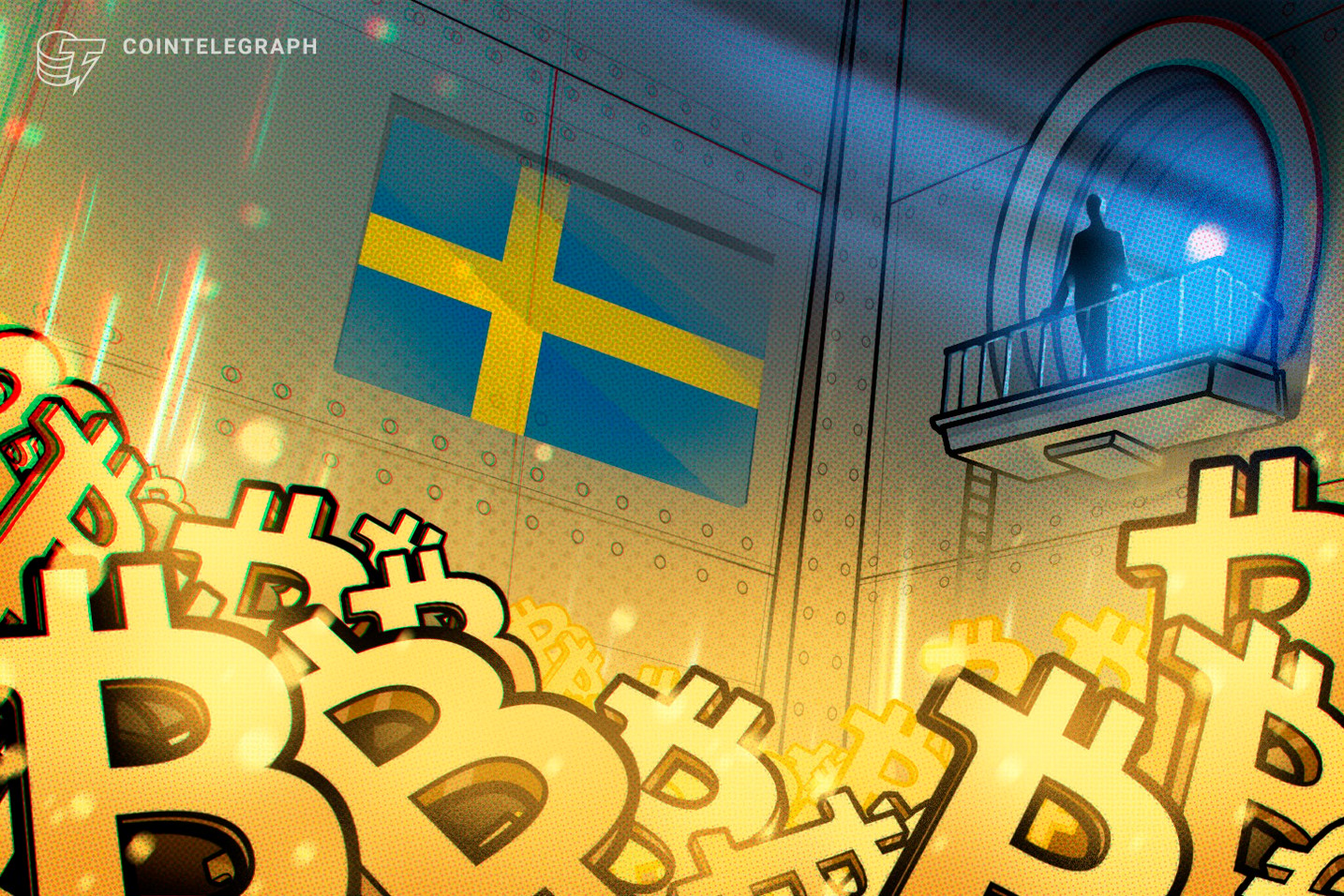
Two parliament members from the Riksdag in Sweden have advocated for the country to explore creating a Bitcoin reserve as a strategy to mitigate inflation and diversify national assets.
They also suggest that the government assure that it will not alter the legal framework governing its central bank’s monetary policy to indicate a lack of intent to implement a central bank digital currency (CBDC).
In their recent proposition to the Riksdag, Swedish Democrats Dennis Dioukarev and David Perez expressed that as nations like the US are already making strides towards establishing such reserves, Sweden should also “join this digital arms race and become part of the rising number of countries acknowledging Bitcoin’s potential.”
Similar to proposals in the US, they mentioned the possibility of funding the reserve through already-confiscated Bitcoin, though the governance of this Bitcoin is still up for debate.
Currently, Sweden has no public Bitcoin reserves, as stated by Bitbo. However, in late 2024, legislation was passed allowing authorities to seize luxury assets, cryptocurrency included, even if they were not directly subject to an investigation.
Advocates for Bitcoin reserves suggest that adopting them could position nations for a potential reformation of the global financial landscape.
Influence of the Swedish Democrats
The Swedish Democrats, aligned with the right, emerged as a significant force in the 2022 elections, garnering over 20% of the vote. This has granted them leverage within the ongoing governmental coalition comprising the Moderate party, the Liberals, and the Christian Democrats.
Dioukarev and Perez articulated in their Bitcoin strategy proposal that establishing a reserve would prepare Sweden for a significant shift in financial structures.
They suggested that integrating a Bitcoin reserve could shield Sweden from economic disturbances affecting its traditional reserves.
“In contrast, Bitcoin’s value is not affected by the monetary policies of specific nations or economies, potentially reducing the overall risk to the reserve.”
Openness to Innovation
Additionally, they pointed out that possessing Bitcoin would indicate a nation’s readiness to embrace digital progress.
Platform Tracxn notes that there are currently 85 cryptocurrency-related companies in Sweden, of which 20 have raised a total of $48 million in funding.
On a practical note, Dioukarev and Perez argue that a reserve aimed at inflation protection could be advantageous due to the established maximum supply of 21 million Bitcoins, faster transaction speeds compared to fiat currencies, and minimal transaction costs.
“Bitcoin ranks as the sixth-largest global asset, comparable to silver and surpassing giants like Tesla, Meta, and Amazon,” they noted.
Dioukarev and Perez are not the first Swedish legislators to propose a reserve; in April, Rickard Nordin of the Centre Party urged Finance Minister Elisabeth Svantesson to consider Bitcoin adoption.
Bitcoin is currently legal in Sweden, with crypto ATMs actively operational within the country. Sweden’s Financial Supervisory Authority regulates cryptocurrency exchanges and enforces anti-money laundering laws.
Lastly, Dioukarev and Perez are advocating to maintain the current legal definition of tender as governed by the Riksbank Act, so as not to signal any plans to launch a CBDC. Sweden operates mainly through digital payment platforms, with the majority using Swish for transactions. In 2020, the central bank pilot tested a CBDC with its results pending future political decisions.


